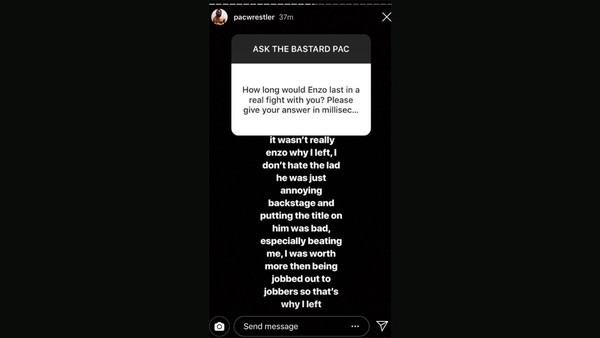Update: Neville Caught In Fake Instagram Sting
Q&A had 'revealed' why PAC left WWE.

UPDATE: Since this story first broke, it has since emerged that the Q&A in question was a fake, posted by YouTube @1stpp. The scammer has since apologised for the story - widely reported in wrestling news outlets - claiming he "never intended for it to go this far."
The original story, as we reported earlier today, is below:
After spending a whole year frozen out of his contract by WWE, Benjamin 'Neville' Satterley was finally allowed to walk by the company back in August, and since returning to Dragon Gate under old name PAC seems a damn sight happier for it.
But one question has continued to boggle wrestling fans since the Geordie first tried to up sticks out of Stamford: what exactly pushed him over the edge?
Reports doing the rounds at the time hinted that PAC was enraged at losing his Cruiserweight title to someone of the quite, quite low calibre of Enzo Amore. Fans of the spectacular high-flyer concurred with the reasoning.
Well, it turns out that's not quite the case. In a recent Q&A conducted via his Instagram, The Man That WWE Forgot noted his inimical stance wasn't directed specifically at Enzo:
"It wasn't really Enzo why I left. I don't hate the lad. He was just annoying backstage, and putting the title on him was bad, especially beating me. I was worth more than being jobbed out to jobbers, so that's why I left."
Neville responded to a question about why he left much more directly, simply stating:
"I disagreed with my booking."
So it really was that simple all along. Alongside his Dragon Gate commitments, PAC is scheduled to make a homecoming appearance with DEFIANT this coming January.